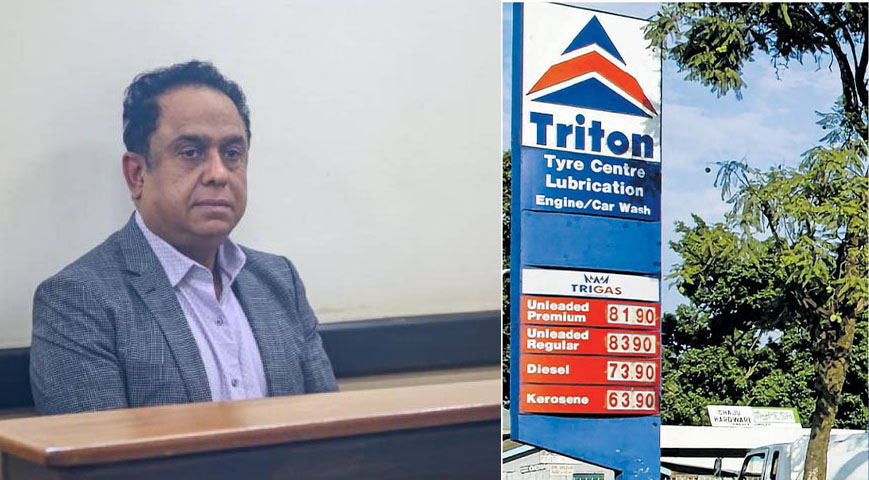Detectives from the Ethics and Anti-Corruption Commission (EACC) arrested businessman Yagnesh Devani on Tuesday concerning the Ksh.7.6 billion Triton Oil scandal.
Devani was apprehended at his Nairobi office and is currently held at the Milimani Anti-Corruption Court cells. EACC spokesperson Eric Ngumbi confirmed the arrest, stating that Devani will remain in custody until Wednesday when he is scheduled to be charged.

Did you read this?
Devani has been evading capture for 16 years, with a warrant for his arrest issued in 2009. The prosecution, appearing before Magistrate Thomas Nzioki, urged the court not to grant Devani bail due to his prolonged evasion of justice. The court agreed, emphasizing that it would be inappropriate to release him on bond given the circumstances.
The chief suspect in the Kes.7.6 billion Triton Oil scandal, Yagnesh Devani, arrested by EACC this morning, will spend the night at Kilimani Police Station. He was escorted to Kilimani this afternoon after processing at EACC Integrity Centre Police Station.
— EACC (@EACCKenya) August 6, 2024
Earlier in the day,… pic.twitter.com/1FDWDyF0oO
The Triton Oil scandal, which emerged in 2008, involves Devani's company, Triton Petroleum Limited. As the executive chairman, Devani's company had secured a significant tender to supply oil to support local oil companies.
However, Triton Petroleum was implicated in fraudulent activities, resulting in a loss of approximately Ksh.7.6 billion (around $70 million) to several banks and investors, including Kenya Commercial Bank (KCB) and Fortis Bank.

The scandal primarily involved Triton Petroleum gaining unauthorized access to oil reserves stored at the Kenya Pipeline Company’s facilities. Devani's company withdrew 126 million liters of oil without the necessary approvals and sold it illegally. This unauthorized sale caused a severe fuel shortage in Kenya.
The EACC has been directed to prepare new charges against Devani before his court appearance on Wednesday. The arrest marks a significant development in a case that has impacted Kenya's financial and energy sectors for over a decade.
The Triton Oil scandal remains one of the largest corruption cases in Kenya's history, with widespread implications for regulatory oversight and corporate governance.












